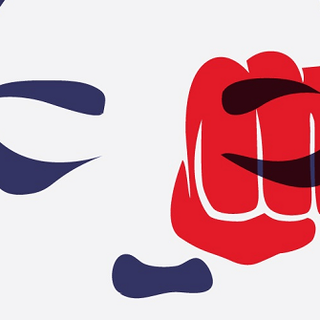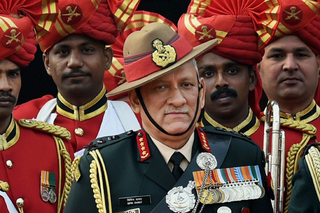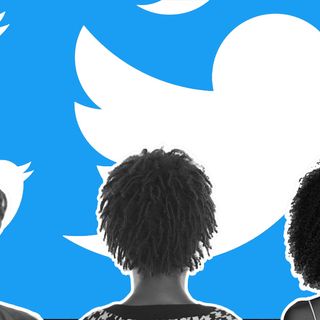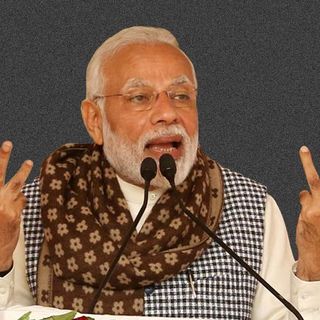
LGTBQ+ Jawans Are Already in the Army; Welcoming Them Would Make the Ranks Stronger
Studies show that inclusive policies make units more effective.

Army Chief General Bipin Rawat does not have a great track record at press conferences, but his most recent comments about queer soldiers have the potential to do more than just ruffle some feathers — they undermine inclusivity, challenge Indian law, and jeopardize the health of active soldiers.
“Hum logon ke yahan nahi chalega” (all this won’t work here), he said recently referring to the Supreme Court’s decriminalization of homosexuality in September last year. He went on to say the Army would still deal with the issue under the Army Act, 1950, stating, “We are neither modernized nor Westernized. LGBT issues are not acceptable to us. […] We will not allow this to happen in the Army.”
The main reason for this statement seems to be that soldiers forgo some of their constitutional rights and privileges while serving in the military, per the Army Act of 1950. Section 46(a) of that law says any soldier guilty of any disgraceful conduct of a “cruel, indecent or unnatural kind” will, on conviction by court martial, face up to seven years in jail. While the Supreme Court, in its repeal of Section 377, used the strongest words to denounce the idea that homosexuality was ‘unnatural,’ the Army Act could still be used to keep open homosexuality out of the ranks thanks to the vagueness of the law’s other words. Major Navdeep Singh, a military law expert, specifies that, while Section 377 can no longer be used to punish consenting adults, soldiers or civilians, the vague wording of the Army Act means “any kind of homosexual or heterosexual behavior that falls under the category of ‘unbecoming conduct,’ is ‘indecent or cruel,’ or in ‘violation of good order and discipline (if it impacts military life)’, can still be punished.”
It’s very possible the Army will interpret and use the Army Act in such a way. The weekend after Section 377 was struck down, the Army chief summoned all colonels and their wives to Manekshaw Centre in Delhi to inform them that this kind of “moral turpitude” was still an offense in the Army. But let’s be clear — the Supreme Court ruling left no question about it: Homosexuality is out of the bounds of ‘morality.’
*
Chief General Rawat’s statements carry weight above and beyond one man’s opinion. The Army is, by design, built to follow the chain of command unquestioningly. In such a system, when leadership makes discriminatory statements, it has a cascading, compounding effect — discrimination becomes an implicit mandate. This often creates a culture in which violence against queer soldiers can be perceived as sanctioned — putting queer people who are undoubtedly already serving in the Army under enormous health and safety risk, not to mention strain from having to keep an integral part of their identity hidden from colleagues and superiors.
Vivek Divan, a long-time queer activist and health rights lawyer, says, “I have met soldiers who have had sex with other men, so there’s no question of homosexuality not existing in the Indian Army.” Instead, Divan points to the consequences these homophobic statements might have on soldiers already serving in the Army. “The fear, in the context of health, has always been that the more you push behaviors underground, the more people will indulge in them dangerously, without protection, and that is a challenge for public health,” he says. “I have worked with people living with HIV for years, and I know that HIV is prevalent in the Army due to unsafe homosexual and heterosexual sex. By condemning homosexuality, you’re going to push queer people further underground, instead of actually having a mature conversation around issues of safety, condoms, STIs, and HIV.”
Related on The Swaddle:
Army Chief Bipin Rawat Says Maternity Leave, Sexual Harassment are Reasons to Keep Women Out of the Frontline
A study conducted in 2013 by the University of Montana, found that US veterans who could not be open about their sexual orientation experienced significantly higher rates of depression, post-traumatic stress disorder, and alcohol or other substance abuse, compared to their heterosexual counterparts. The study also found that 69.3% of subjects experienced fear or anxiety about concealing their sexuality, and 14.7% made serious attempts at suicide, compared to the general American veterans’ suicide attempt rate of 0.0003%. The repercussions of keeping soldiers in the closet are vast.
*
Other arguments for keeping LGBTQ+ people out of military service, or closeted while serving, have been widely debunked.
Theories that LGBTQ+ people serving in the military could negatively affect unit cohesion are not backed by any research. In fact, studies have proven that not only is this not true, but that acceptance of people’s sexual orientation improves the efficiency and ability of armed forces. Countries that have reversed policies thatdiscriminate against queer soldiers, like the UK, Canada, US, and Australia, have faced no large-scale issues as a result. The “Don’t Ask, Don’t Tell” policy in the US, actually cost the country more than $200 million for the soldiers they had to discharge under the policy, and the replacements they had to recruit and train.
In his comprehensive study of five countries that allow queer people to openly serve in the military, historian Nathaniel Frank wrote, “Research has uniformly shown that transitions to policies of equal treatment without regard to sexual orientation have been highly successful and have had no negative impact on morale, recruitment, retention, readiness or overall combat effectiveness.”
But while other countries have taken this into account, India seems to still hold on to certain ideas of masculinity and morality that may impede its progress. “Masculinity is very closely linked to sexuality, and in an institution that is already so hyper-masculine, it would’ve been only right for the Army chief to speak about homosexuality in a more informed way. It would serve his own forces better,” says Divan. “If the Army chief wants to be sensitized on these issues, we’re here. We’re willing to work, willing to talk. That’s the sort of thing I would have hoped for: A response that tries to engage, to understand the queer community, to have a rational position on it.”
Data shows that it’s actually more effective for militaries to support their soldiers, no matter what their orientation. Since the Supreme Court has decriminalized homosexuality, one would hope that there would be no more obstacles to implement policies that are inclusive within the Indian Army. The only thing holding us back now are our own mindsets.
Nadia Nooreyezdan is The Swaddle's culture editor. Since graduating from Columbia Journalism School, she spends her time thinking about aliens, cyborgs, and social justice sci-fi. She's also working on a memoir about her family's journey from Iran to India.
Related


Western Bias Colors Fight Against Online Abuse of Women
